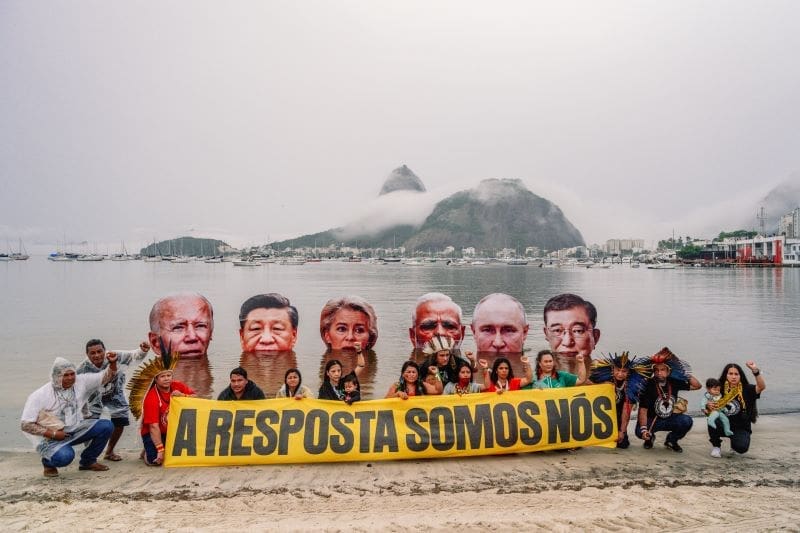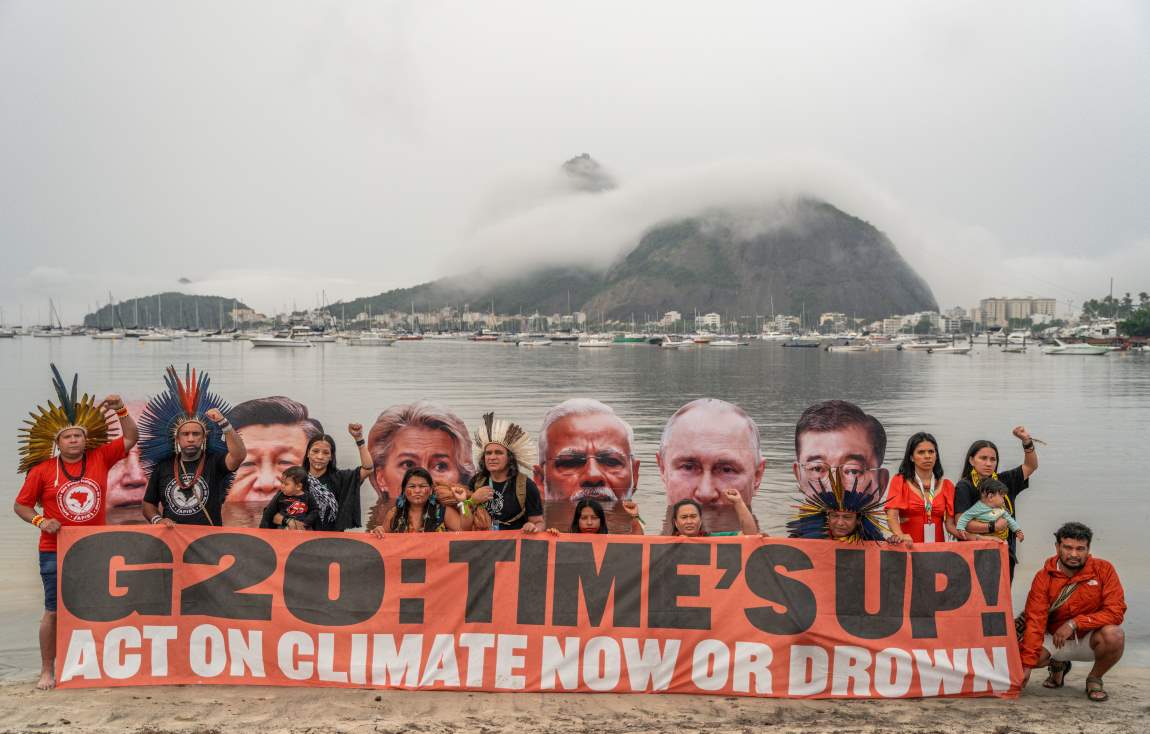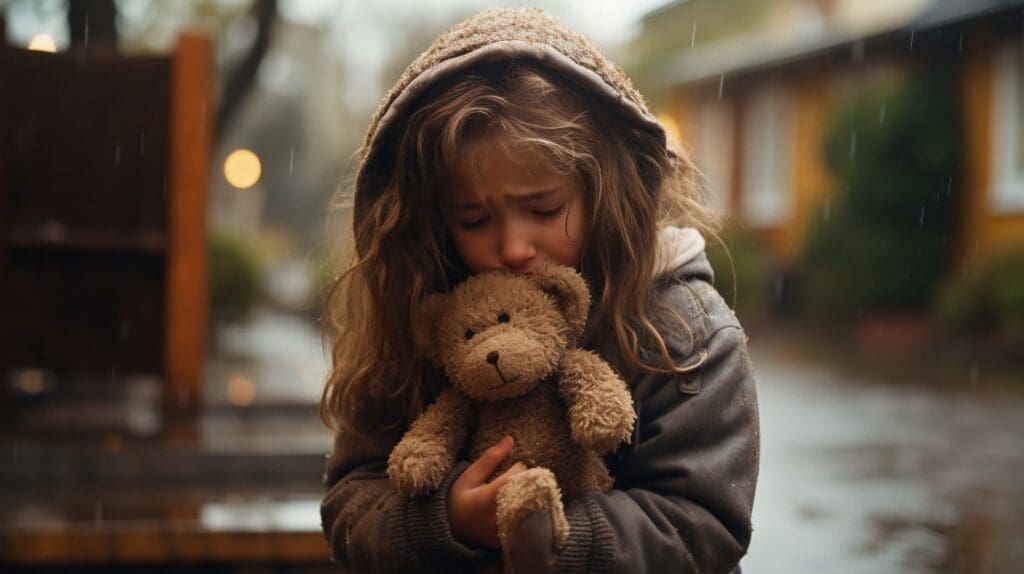Rio de Janeiro, Brazil – In a dramatic call for accountability and action, the Articulation of Indigenous Peoples of Brazil (APIB) staged a poignant demonstration in Rio de Janeiro, challenging the inaction of the world’s wealthiest nations in addressing the climate crisis. The event, held just two days before the G20 summit, emphasized the urgency of global leadership in combating a crisis that disproportionately affects the planet’s most vulnerable communities.

With the iconic Sugarloaf Mountain as a backdrop, the peaceful protest featured images of leaders from major polluting countries, including China, the United States, India, the European Union, Russia, and Japan, placed in the water to symbolize a crisis of leadership and moral values. The action launched APIB’s global campaign, We Are the Answer, and set the stage for Brazil’s pivotal role as host of next year’s 30th Climate Conference (COP-30).
Indigenous peoples demand climate justice
In their statement, APIB called for decisive measures to avert a global ecological collapse. “Strong and effective action must be taken with the imminent collapse of living conditions worldwide. There will be no preservation of life on a planet in flames,” they declared. The group demanded the recognition of Indigenous land demarcation as a core climate policy and asserted their right to a leading role in shaping global decisions.
Indigenous leaders emphasized their historical commitment to defending life on Earth and criticized governments for negotiating inadequate climate targets and insufficient funding. Kleber Karipuna, executive coordinator of APIB, reinforced this sentiment, stating: “We need political courage, especially from the wealthiest nations, to end the use of fossil fuels once and for all, accelerate a fair transition, and fund those who have done the most to address the climate crisis. We are the true climate authorities.”
The climate crisis and wealth disparities
The G20 nations, which account for over 80% of global wealth and greenhouse gas emissions, are under mounting pressure to deliver substantial climate solutions. As the deadline for updated Nationally Determined Contributions (NDCs) approaches in February, activists argue that meaningful progress hinges on ambitious commitments from these countries.
A 2022 study by the UN-affiliated Independent High-Level Expert Group on Climate Finance estimates that developing nations, excluding China, will require $2.4 trillion annually by 2030 to address climate challenges. This funding is essential for nature conservation, renewable energy transitions, and climate adaptation. However, current global priorities tell a different story. In 2022 alone, governments provided $7 trillion in subsidies to oil companies, while less than 7% of the $1.7 billion pledged to Indigenous peoples at COP26 has reached them directly.
“It is urgent to correct this policy that puts the profits of big corporations above the protection of communities,” said Dinaman Tuxá, executive coordinator of APIB. “The richest nations must take responsibility and fund climate solutions for those who, like Indigenous peoples, are on the front lines of the crisis.”
A call for Global Accountability
The Indigenous movement’s demands underscore the disproportionate impact of the climate crisis on marginalized communities and the critical role Indigenous territories play in safeguarding global biodiversity. As Brazil prepares to host COP30, Indigenous leaders are urging both their government and the international community to prioritize equitable climate financing, a rapid transition away from fossil fuels, and the acknowledgment of Indigenous peoples as indispensable stewards of the planet.
The G20 summit in Rio de Janeiro presents a critical opportunity for the world’s largest economies to rise to the challenge. But for APIB and their allies, mere promises are no longer enough. The We Are the Answer campaign calls on the world’s most influential nations to act with urgency and integrity to protect the planet for future generations.
For more information, visit the campaign website at arespostasomosnos.org.
Article Source:
Press Release/Material by 350.org
Featured image credit: The Articulation of Indigenous Peoples of Brazil (APIB)




